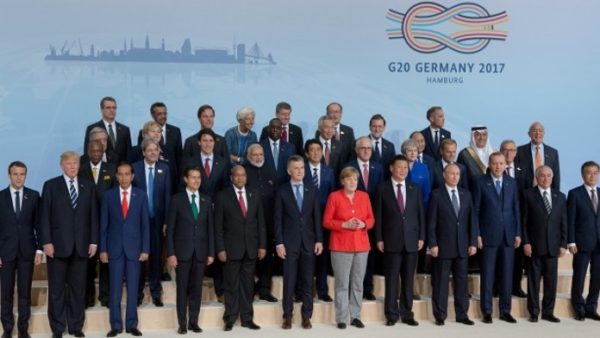The G20 agreement to extend the debt service grace period for low-income countries offers welcome, but only short-term, pandemic-related relief, given the prospect of higher future repayment of debt and over-indebtedness in the medium term. This is the point of view of Scope Ratings. The Berlin-based rating agency believes that the expansion of the Debt Service Suspension Initiative (DSSI) will translate into further short-term savings for the world’s poorest governments, including those in Africa. “These savings are, however, offset by higher payments for medium-term debt service, with perhaps a face amount higher than the amounts initially suspended due to the principles of neutrality of the net present value (NPV)”, says Dennis Shen, director of sovereign and public sector ratings at Scope Ratings.
The extension of the G20 framework provides a real boost to African governments, which need immediate more substantial debt restructuring to regain market access at sustainable borrowing rates. Recent requests from Chad, Ethiopia and Zambia for debt restructuring under the Common Framework, beyond the DSSI, are positive, but the Framework’s focus on extending the maturity of debt and, where applicable, debt reduction only under NPV terms, may not go far enough in debt settlement, Scope Ratings believes.
In addition, the DSSI and the Common Framework target low-income countries, leaving many middle-income countries vulnerable to the debt crisis. “While private sector creditors have again been called upon to participate in this extension of the program, the existing architecture of DSSI lacks the required enforcement mechanisms that could ensure fair treatment between types of debt. creditors in debt relief. This means that different types of creditors are likely to contribute to debt relief to varying degrees, undermining DSSI’s ability to achieve a more holistic view such as the systematic inclusion of principal depreciation as an applicable tool for debt relief. issuers facing solvency problems “.
As the composition of Africa’s debt continues to shift towards commercial and non-Paris Club creditors, a debt restructuring on more ambitious terms involving a broader group of creditors, including the private sector and multilateral creditors – creditors accepting equitable losses on interest and / or principal (including through outright depreciation of principal) – would potentially result in a temporary credit rating default for sovereign borrowers who need of such support. However, a complete restructuring that involves debt cancellation could significantly improve the credit profiles of many poorer countries after the restructuring.
The value of this approach lies in the recognition that many African governments are in a weak position to cope with increasing medium-term debt service needs due to DSSI payment deferrals, half of all rulers of sub-Saharan Africa being at high risk or already in debt before the arrival of the Covid-19 pandemic. “This additional deferral of debt servicing is welcome to many of the 46 global governments participating in DSSI who are struggling to find the funds needed to meet urgent spending needs and secure vaccines. Yet this potentially exposes some of the most vulnerable borrowers to a high risk of future debt distress, ”said Thibault Vasse, analyst at Scope. “By postponing today’s problems until tomorrow, interest and principal payments could instead fall due in a future period when international support for multilateral debt relief will be less important than at present.” , continues the analyst.
As such, “we may miss an opportunity to harness current global solidarity to more sustainably address Africa’s solvency challenges amid a common unifying crisis,” Vasse says. “The DSSI extension is helping prevent many low-income countries from falling behind in what is already a divergent global economic recovery,” Shen concludes. “Nonetheless, designing debt relief that goes beyond the DSSI and the Common Framework is still necessary and could represent the difference between a sustainable recovery for borrowing countries or a lost decade.”
As a reminder, Scope Ratings GmbH is part of the Scope group headquartered in Berlin with offices in Frankfurt, London, Madrid, Milan, Oslo and Paris. As the leading European credit rating agency, the company specializes in the analysis and rating of financial institutions, companies, structured finance, project finance and public finance. Scope Ratings provides opinion-based, forward-looking, non-mechanistic credit risk analysis, an approach that adds to a greater diversity of opinions for institutional investors. The credit rating agency is registered in accordance with EU rating regulations.



